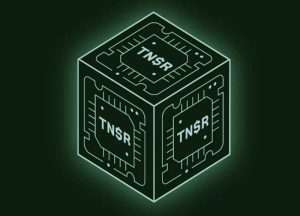Tax on Proof-of-Work
Most bitcoin owners aren’t cypherpunks and don’t require an energy-intensive consensus mechanism. A tax would shift them on to sensible alternatives.
Bitcoin is an energy-intensive protocol designed for serious cypherpunks. Alas, bitcoin has been mobbed by unserious speculators, pushing up its price and blowing up its electricity usage. It’s time to enact a tax on proof-of-work. The tax would drive the tourists away, bring proof-of-work consumption back to a balanced level and make bitcoin cheap again for cypherpunks.
The Bitcoin network provides bitcoin owners with a unique sort of security – proof-of-work. Proof-of-work, or PoW, is a method for securing a network in a decentralized manner. The process, however, is incredibly energy-intensive, requiring thousands of competing processors, or miners, to perform redundant calculations. Other forms of security, say that underlying instruments listed on the Nasdaq stock exchange, rely on cheaper centralized methods.
Think of bitcoin as an M1 Abrams tank. A Nasdaq-listed stock is a zippy little Toyota. Most of the time a cheap Toyota works fine. But there are times and places when an expensive M1 Abrams is needed.
There is a small community of cypherpunks – hobbyists and technologically informed individuals – who like to consume bitcoin’s tank-like security. They make PoW-secured transactions and eschew non-PoW-secured transactions. These cypherpunks are well-versed in self-custody. They have a deep understanding of what bitcoin is and can clearly articulate why they prefer PoW-based security.
Then there is the great unwashed.
Most of the people buying bitcoin these days are not cypherpunks. They are casual users. These “tourists” don’t particularly want to make peer-to-peer bitcoin payments. They don’t care about the Bitcoin network’s tank-like level of security. They are quite content to keep their bitcoins lodged at Coinbase or Binance. They couldn’t write a lucid paragraph on PoW if their lives depended on it.
What these casual users are after is “number goes up” – they want to get rich. And it’s because of this influx of speculators that a tax on proof-of-work could end up being necessary.
We can all agree that it’d be overkill to routinely drive an M1 Abrams tank to shop at the local corner store. The odds of getting held up just for one’s butter and eggs just doesn’t justify the costly security of an M1 Abrams. A Toyota will do just fine, thank you. The same goes for proof-of-work. For most people, consuming expensive proof-of-work security is akin to using an M1 Abrams to go shopping. It’s unnecessary, even frivolous. A cheap Nasdaq penny stock should suffice.
The sheer physical cost of filling up an M1 Abrams with gas is a major impediment to casual tank usage. Alas, this “brake” doesn’t operate with proof-of-work. Casual bitcoin users get to enjoy bitcoin’s tank-like security without incurring any out-of-pocket costs.
The reason that casual bitcoiners don’t feel the immense expense of bitcoin security is because the mining bill is (mostly) paid for with new bitcoin. Every 10 minutes, 6.25 new bitcoins are created to compensate miners. Issuance of new bitcoins doesn’t hurt the price of the bitcoin in tourists’ wallets. The timetable of new bitcoins was built into the price of bitcoin ages ago.
And so the casual bitcoin tourist gets bitcoin’s gold-plated security without having to endure any associated costs. It’s as if they get to drive an M1 Abrams tank to Walmart, for free. If you could drive an M1 Abrams to Walmart for free, wouldn’t you?
Proof-of-work should never have been more than a neat niche product used by cypherpunks and other associated outsiders. Thanks to an influx of casual buyers, the Bitcoin network now uses a massive 141 terawatt hours per year of electricity, about 0.63% of the world’s electricity, according to the Cambridge Centre for Alternative Finance. That’s more electricity than many countries and industries.
Bitcoin’s energy consumption could grow to much larger proportions. Say that casual buyers push the price of bitcoin up to $380,000 in 2023. That’s 10 times the current price, a move that bitcoin has done many times before. With bitcoin at $380,000, the total market value of all bitcoin ever mined would be $7.8 trillion, just a little less than the value of all gold ever mined.
As the price of bitcoin rises, the real value of the 6.25 BTC mining reward increases, attracting more miners that burn ever more electricity. With bitcoin’s price at $380,000, the Bitcoin network would be consuming a whopping 1,400 terawatt hours or so of electricity, around 6% of the world’s electricity (based on a simple linear interpolation from today’s price and energy consumption.)
That would be a tragic mistake. We shouldn’t be sacrificing 6% of the world’s energy to produce tank-like levels of security for speculators who don’t need that security. There are far better uses for scarce energy resources than pure price speculation.
That’s where the tax comes in.
Sometime before bitcoin hits $380,000, a tax on bitcoin purchases should be implemented. It would apply at regulated venues like Coinbase and Kraken and on large professional actors, like hedge funds. Casual speculators would finally feel some of the burden of producing bitcoin’s security. To avoid the tax, they would likely select other types of volatile instruments, ones with a much lower electricity requirements. They might, for instance, purchase proof-of-stake cryptocurrencies, Nasdaq penny stocks, three times-levered exchange-traded funds or out-of-the-money Tesla options.
The tax would make most people better off than before (or at least just as well-off).
Casual tourists would remove bitcoin from their menu of bets. But there are hundreds of thousands of speculative instruments offering wild price gyrations, and so the tourists are effectively no less well-off than before. They would get Nasdaq levels of security rather than Bitcoin-levels of security, but for casual bettors that’s fine.
Cypherpunks are better off. By purchasing their bitcoin on unregulated venues like Bisq, they wouldn’t have to pay the tax. They would also benefit from casual buyers being pushed out of the bitcoin market, and the subsequent decline in the price of bitcoin. When copper or lead falls in price, users of these commodities benefit: They can consume more metal than before. Likewise for bitcoin. A tax-induced plunge in the price of bitcoin would allow cypherpunks to acquire and consume bitcoin-the-commodity at a far cheaper price than before.
Finally, the rest of the world would be better off. Pushing casual bitcoin tourists away from unnecessary consumption of PoW would free up huge amounts of electricity – both renewable and non-renewable – to be consumed by other industrial purposes. It’s win-win-win.










